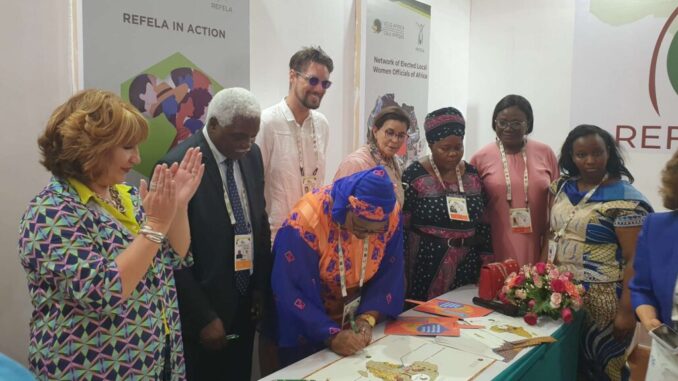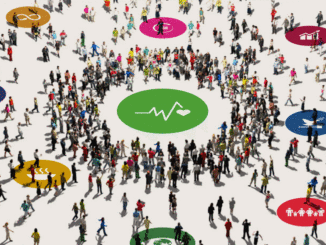
In May 2022, a new tool was introduced to achieve gender equality in Africa’s towns and regions: the Local Authorities Charter for Gender Equality in Africa. The Charter was launched at Africities, hosted by Kisumu (Kenya), as the largest Pan-African democratic gathering, organized by United Cities and Local Governments of Africa (UCLG-Africa).
It was an emotional and symbolic moment that has been in the making over four years of intense work, broad and participative consultations, exchanges and reflection between UCLG-Africa, its Network of Local Elected Women in Africa (REFELA), CEMR and PLATFORMA.
“It is an honor for Africities to have hosted the signing ceremony of the Gender Equality Charter. This is a sign that our organisation proudly carries the banner of gender consideration,” declared Fatimetou Abdel Malick, new President of UCLG-Africa.
A fundamental human right and the basis for effective and sustainable development, gender equality is a shared value and common objective for local and regional governments worldwide.
The new Charter, addressed to mayors and local leaders across Africa, is made up of 18 articles covering themes such as women in leadership, professional equality, tackling violence against women and girls, and the role of women in local planning and development. It is currently available in four languages: Arabic, English, French and Portuguese.
An implementation guide has also been published to support signatories of the Local Authorities Charter for Gender Equality in Africa in turning their political engagement into concrete action to improve governance, enhance women’s rights and foster more equitable societies. It provides methodological resources and case studies highlighting successful practices in gender mainstreaming at local level.
The presentation of this Charter, which has been created by and for Africa’s local territories, demonstrates the potential of global cooperation among municipalities and cities to promote and achieve sustainable progress.
The Secretary General of the Council of European Municipalities and Regions (CEMR), Fabrizio Rossi, expressed his enthusiasm for this example of successful decentralised cooperation between Africa and Europe: “It is a proud day for UCLG-Africa and the Network of Local Elected Women in Africa (REFELA)”, he said. “CEMR and PLATFORMA are honoured to have been part of the process to develop the African Charter and to share the experience we’ve had during 15 years with the European Charter for Equality. I look forward to seeing the transformations this tool will enable and I know that we will continue to inspire and learn from each other with good gender equality practices.”
The African Equality Charter comes at a critical point, in a context where women and girls still face discrimination and inequalities in access to education and healthcare, gender gaps in decision-making, leadership and economic empowerment, and face high levels of violence and harassment. All of these problems have worsened during the COVID-19 pandemic.
“Equality is no longer an option, but a necessary element for recovery,” said Emilia Saiz, Secretary General of United Cities and Local Governments (UCLG). “Women can bring new approaches to policymaking and a new municipalism to the table in international, national, regional and local arenas; and local governments can be a catalyst for women’s participation.”
Local authorities are key players for enhancing gender equality and putting the African Union’s Agenda 2063 into practice. They are also crucial to achieving global gender equality agendas, including the Sustainable Development Goal 5 on women’s empowerment and the UN’s Beijing Platform for Action.
UCLG-Africa and REFELA will lead the way forward to ensure the widespread adoption and implementation of the Local Authorities Charter for Gender Equality in Africa. Through awareness-raising and promotion campaigns, capacity-building and bringing in partners and supporters, the ambitious goals outlined in the Charter can become a reality.
Find out more about the launch on Twitter with #GenderCharter4Africa. Read the Charter.
Source: This blog was originally posted on the Platforma website (June 2022).



